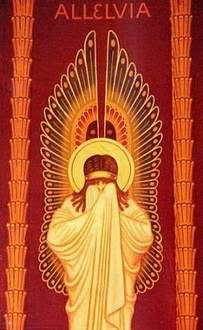Put all your books in one pile (it’s a tall pile!). Take the top book and on a small note card (3” x 5”) write down the title and author. Then write down short (short!) answers to these three questions:
- 1) What does the author say? Just pick the highlights. Know the thesis of the book (this is usually stated right at the beginning of the book).
- 2) Why does the author say that? Know how the author argues for the thesis and some of the critical insights presented that support the thesis.
- 3) Why is this book important? Have an opinion about how this book influences your own thought, ministry, and understanding. Know how this book has influenced Catholic thought. Once you can answer these three questions about that book, put that in a “done” pile, and start on the next book in your tall pile.
I intentionally used 3x5 cards because you need to “know how to gut a book” as one of the SJU profs told me. That is, be able to state the heart of the book. Don’t get bogged down by details. Write a summary of the book in your own words that fit on a 3x5 card.
Academic book reviews were helpful to me to get a sense of the overall structure of a book. You can find a book review on almost any academic book by doing a search through academic journals. (You can do all this online – I used SJU’s Academic Search Premier.)
Review your class notes on any topics that you submitted. Mark useful points with Post-It notes.
As you read through your books, mark with Post-It notes any quotes that might be useful for your papers. I used small quarter-inch Post-Its in different colors. In hindsight, I should have used one color for quotes that would be useful for paper topic #1, another color for quotes for paper topic #2, etc.
Practice speaking theologically outloud with other people, both fellow students and complete outsiders to academia. I happened to meet someone who knew nothing about the Catholic Church. He asked me many questions about the Church and I found myself summarizing for him, in my own words, much of the basic theological points that I had learned over the years.
Here's something that helped me one night when I was channel surfing. Watch EWTN! They often have commentators that give explanations about theological concepts or liturgical practices, and (at least for me) I would often disagree with their reasoning. As I listened to one commentator, I found myself giving my own running commentary, providing my own historical, theological, and liturgical arguments based on my study.
Finally, do some serious reflecting about what you have learned from your study--not the detail, fact stuff, but the deeper transformation that (hopefully) has taken place in you. What in your graduate school experience has transformed you and how? How will you use what you have learned to make your ministerial work more effective? Let's face it. Even if you're not planning to do any pastoral ministry in a Church, school, or diocese after your degree, you will be "ministering" and influencing the Church whenever you speak or write about your faith. Your diploma confers "rights and responsibilities." How will you use your "responsibility" as a person steeped in faith, formed by reason, and studied in the correlation between our experience of God and daily human life to make the presence of God clearer in our world today?

No comments:
Post a Comment